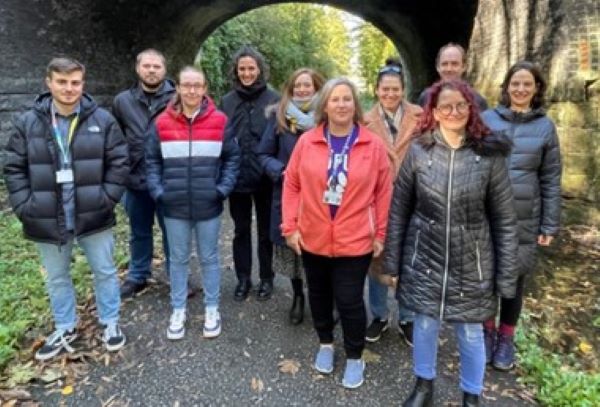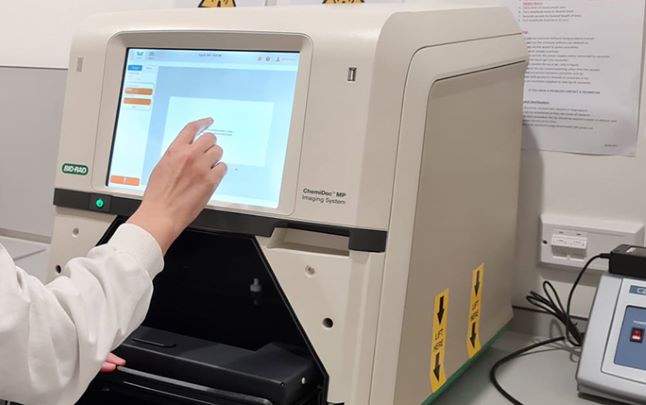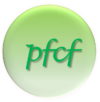We have supported Institute in the Park in Liverpool since 2015 and they are now a Partner Charity which will secure funding over the longer term. Ana Lucia Serafim de Carvalho Kok is an important member of Professor Christian Hedrich’s research team and this is her update on their current work.

“The Child Health programme at the Institute in the Park is linking clinical services at Alder Hey Children’s NHS Foundation trust with academic pipelines at the University of Liverpool (UoL) Department of Women’s and Children’s Health and the wider research community at the University of Liverpool.
The Department of Women’s and Children’s Health is devoted to understanding and improving women’s reproductive health and health events and outcomes for children and young people, and studying how they determine health and wellbeing throughout a lifetime. Understanding the molecular mechanisms underpinning disease and developing effective therapies will contribute to the prevention and treatment of chronic pathology, resulting in improved life-time health and reduced healthcare
Embedded in the Department of Women’s and Children’s Health, the UK’s Experimental Arthritis Treatment Centre for Children (EATC4C) is a unique centre dedicated to improving the health and wellbeing of children. The EATC4C is an exemplar for research activities targeting rare childhood disease to generate knowledge in less common inflammatory diseases to then apply to rare and more common disorders and improve the health and wellbeing of children affected by “chronic inflammation”. The EATC4C is a unique group of clinicians and scientists that are focused and dedicated towards taking a step forward in the use of early translational and experimental medicine to treat childhood arthritis and other related rheumatic and musculoskeletal disorders, such as juvenile idiopathic arthritis (JIA), JIA – associated uveitis, juvenile-onset systemic lupus erythematosus, inflammatory and non-inflammatory bone diseases, and scleroderma.
In laboratory-based studies the team unveils mechanisms of disease, tests new and different treatments and looks for new disease biomarkers, which are molecules that occur naturally in the body. Once established for routine care, biomarkers will predict disease flares or response to medications. The Child Health programme of UoL and the EATC4C team is also dedicated to performing early phase clinical trials, testing promising medicines that are often used to treat similar conditions. The aim of our trials and studies is always to make children feel better and improve their conditions, in order to help them get back to school, friends and family.

A great advantage of the Child Health programmes at the Institute in the Park, including the UK’s EATC4C, is its location right next to the Alder Hey Children’s NHS Foundation Trust Hospital, a world leader in paediatric healthcare and research that cares for over 330,000 children every year.
Children and young people are at the heart of the work we do at the EATC4C – the team works closely with children and their families to understand what is important to them. This means getting them involved in all stages of our research, including planning the studies and developing the patient information sheets.
Chronic nonbacterial osteomyelitis:
Chronic non-bacterial osteomyelitis (CNO) is a non-infectious form of bone inflammation that mostly affects children and young people. CNO causes lesions on the bones in multiple areas of the body that can last, weeks, months or even years. It causes severe pain, reduced mobility and fever, and result in bone fractures, usually affecting vertebral bodies, and delay of psychomotor development.
under the imaging system
In patients with CNO, we have identified mutations in a gene that is closely linked with the regulation of inflammation in innate immune cells. To look into the impact of this gene in the development of CNO, Dr Amandine Charras generated cells to use as a model to compare what happens in the body when expression of the candidate gene is altered. This will give us information on what is happening in the immune systems of CNO patients and help us to identify possible biomarkers for CNO and new treatment targets.
Juvenile-onset SLE:

Systemic lupus erythematosus (SLE) is an autoimmune disease in which the immune system attacks its own tissues, causing widespread inflammation and tissue damage in different organs including joints, skin, brain, lungs, kidneys, and blood vessels.
ChemiDoc Imaging System
Our immune system produces antibodies as a defence mechanism against foreign bodies, such as infectious pathogens. If the production of these antibodies is poorly managed, they can start “attacking” our own organs, which is what happens in the case of SLE.
We identified rare damaging variants in individual SLE patients that can cause disease, and common variants that increase the risk for SLE development or particular organ involvement. Some of the genes affected are involved in the maintenance and degradation of antibodies, which can affect the levels of antibodies in our bodies. Dr Ana Carvalho is currently analysing the impact of such gene variants and on the development and maintenance of inflammation in SLE. Ultimately, we want to find out whether some gene variants can be used as markers to indicate severity of disease or which organs can be affected.
The JSLE/LN project:
Lupus nephritis (LN) is one of the main complications of juvenile-onset systemic lupus erythematosus (JSLE), a rare, multi-system autoimmune disease. Dr Rachael Wright used kidney cells models to test the effect of different inflammatory molecules produced in the bodies of JSLE patients. She observed that some of these molecules, such as NF-kB, target kidney cells and cause inflammation. Increased levels of these inflammatory molecules can possibly be used as a marker for kidney damage in children with lupus-related kidney problems. The ThermoFisher EVOS FLOID microscope has been crucial in the success of this work which was published in Nature Scientific Reports in 2019.”
Childhood illnesses will always pull at the heart strings. Dedicated research teams with a “can do” attitude are at the centre of improving our understanding of these diseases. This can then progress to managing the condition and hopefully leading to a cure. This is why we have made the decision to make funding available to Christian’s team at Institute in the Park over the long term.
